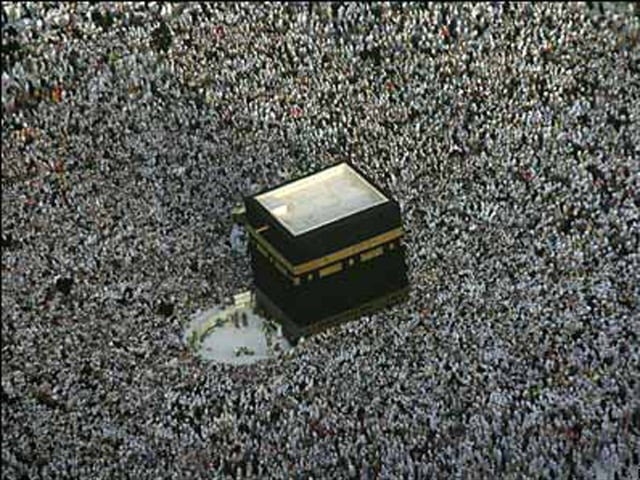Hajj begins without any untoward incident
Pilgrims from all over the world are estimated to total up to 2.5 million this year.

The pilgrims are estimated to total up to 2.5 million this year, the Saudi authorities have yet to report any major incidents since the faithful descended on the holy city.
Many took buses but some had already set off on foot overnight as they headed to the vast plain of Mina, a small village about five kilometres east of Makkah.
Authorities say permits have been granted to 1.7 million foreign pilgrims, with a further 200,000 or so issued to pilgrims from within Saudi Arabia and from neighbouring Gulf states.
This year has seen a crackdown on pilgrims who do not have the requisite papers as authorities attempt to prevent numbers getting out of hand.
A driver caught transporting unauthorised pilgrims faces a fine of 10,000 riyals (2,667 dollars) for each individual. Vehicles with a capacity below 25 passengers have also been banned from entering hajj sites to streamline the flow of buses transporting pilgrims.
The passage to Mina marks the official launch of the hajj on the eighth day of the Muslim calendar month of Zilhajj.
The day is known as Tarwiah (Watering) as pilgrims in the past stopped at Mina to water their animals and stock up for the following day's trip to Mount Arafat.
At Mount Arafat, some 10 kilometres southeast of Mina, the pilgrims spend the day in prayer and reflection.
After sunset, they move on to Muzdalifah, halfway between Mount Arafat and Mina, where they spend the night.
On Tuesday, the first day of Eidul Azha or the Feast of the Sacrifice, the pilgrims head back to Mina after dawn prayers.
They then perform the first stage of the symbolic "stoning of the devil" and make the ritual sacrifice of an animal, usually a lamb.
During the remaining three days of the hajj, the pilgrims continue the ritual stoning before performing the circumambulation of the Kaaba in Makkah and heading home.
No major incidents have been reported this year since the pilgrims began gathering in Makkah. The city's Grand Mosque has been flooded with the faithful, with an estimated 1.7 million taking part in the main weekly Muslim prayers on Friday.
The movement of pilgrims between the holy sites is a major worry for Saudi authorities who have had to deal with deadly stampedes in the past.
In recent years, the kingdom has used its huge oil revenues for massive spending on new infrastructure to ease the flow of people.
This year, the first phase of the new Mashair Railwayk, or Makkah metro, will transport pilgrims between Mina and Mount Arafat through Muzdalifah.
The Jamarat Bridge, where pilgrims perform the ritual stoning, has also been expanded to five levels with movement channelled in one direction.
Security remains a concern. Last Wednesday, Saudi Interior Minister Prince Nayef bin Abdul Aziz said he could not rule out the possibility of a sabotage attempt by al Qaeda.



















COMMENTS
Comments are moderated and generally will be posted if they are on-topic and not abusive.
For more information, please see our Comments FAQ